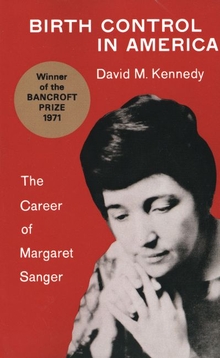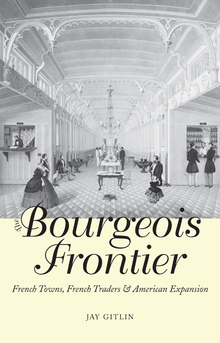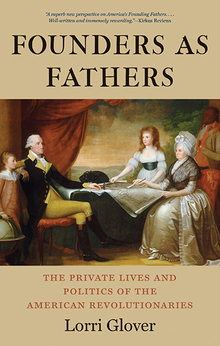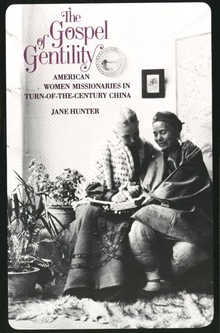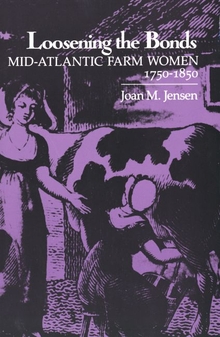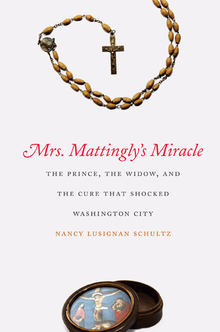Birth Control in America
WARNING
You are viewing an older version of the Yalebooks website. Please visit out new website with more updated information and a better user experience: https://www.yalebooks.com
The Career of Margaret Sanger
David M. Kennedy
A history of the birth control movement in the United States must necessarily be in part a biography of the movement’s leader – Margaret Sanger. In this volume Mr. Kennedy describes Mrs. Sanger’s great personal influence on the course of the birth control movement and examines those elements of her thought and character which shed light on the nature of twentieth-century feminism and reform. He shows that Mrs. Sanger contributed as much to women’s continuing subordination as she did to their liberation. Similarly, he describes how she took the birth control issue with her as she moved from a commitment to radical anarchism to middle-class respectability, thereby transforming what she had conceived as a proletarian weapon in the class struggle into a conservative instrument of social control.
Mr. Kennedy also explores the heritage of nineteenth-century attitudes about the family, women, and sex which influenced the reception given to Mrs. Sanger’s proposed reform. He discusses the impact of the birth control movement upon organized religion, the medical profession, and the law where, in each instance, initial antipathy slowly gave way to qualified acceptance. Even the federal government, which had prosecuted Mrs. Sanger in 1914, was itself promoting birth control by the time of the Second World War.
Margaret Sanger died a heroine in 1966. Yet, as the author points out, however valuable her legacy to us today, her cause was often one of ambiguous implications whose complexities even she did not always understand.
Mr. Kennedy also explores the heritage of nineteenth-century attitudes about the family, women, and sex which influenced the reception given to Mrs. Sanger’s proposed reform. He discusses the impact of the birth control movement upon organized religion, the medical profession, and the law where, in each instance, initial antipathy slowly gave way to qualified acceptance. Even the federal government, which had prosecuted Mrs. Sanger in 1914, was itself promoting birth control by the time of the Second World War.
Margaret Sanger died a heroine in 1966. Yet, as the author points out, however valuable her legacy to us today, her cause was often one of ambiguous implications whose complexities even she did not always understand.
"In this study of the birth control movement, Kennedy shows how much its success was due to the efforts of Mrs. Sanger, despite the unfortunate effects of some of her personality traits. He discusses the relationship of attitudes toward contraception with beliefs about the position of women, Freudian psychology, and sex. . . . This is a careful, well-written historical study with thorough documentation and a bibliographical essay. Readers interested in 20th-century social and medical history will find it rewarding."—Journal of the American Medical Association
"It is refreshing to find a biography of Margaret Sanger that does not seek to canonize her, and even delights in her numerous foibles and vanities without detracting from her greatness. Indeed, David Kennedy's Birth Control shows how these characteristics contributed to—as well as hindered—the progress of the birth-control movement in the United States. . . . Birth Control is a scholarly presentation of a neglected topic in the evolution of an important facet of social philosophy and action."—New York Times Book Review
"This is an engrossing and penetrating study of Margaret Sanger and her work, one that follows the late celebrated and once notorious pioneer of the birth control movement from her radical Socialist days when she was seeking a 'Cause' to the days of her ultimate respectability. . . . David Kennedy chronicles with sustained interest the notoriety of her early years and impressively documents every phase of her work. . . . A solid and serious biographical study."—Publishers Weekly
"A careful and complete account of the birth-control movement in this country from 1912 to World War II. . . . It is useful for the insights it provides into the 'reformer as social type.' . . . A significant contribution . . . to the cultural history of the United States."—Catholic Historical Review
"The chief merit of David Kennedy's solid, well-researched study is that it puts both Mrs. Sanger and the movement she headed in perspective."—Commonweal
Winner of the John Gilmary Shea Award of the American Catholic Historical Association for 1970
Winner of the Bancroft Prize in American History for 1971
ISBN: 9780300014952
Publication Date: September 1, 1971
Publication Date: September 1, 1971
320 pages, x

